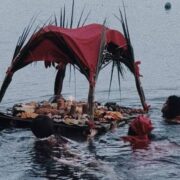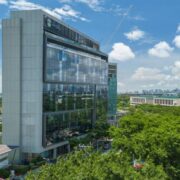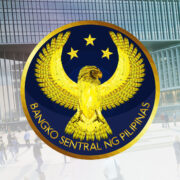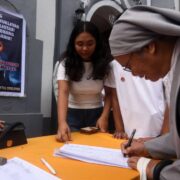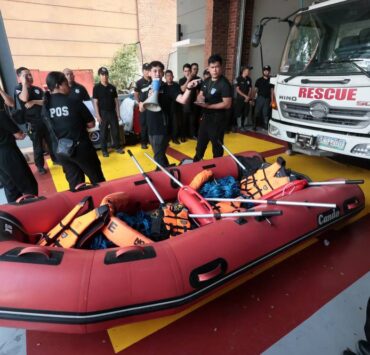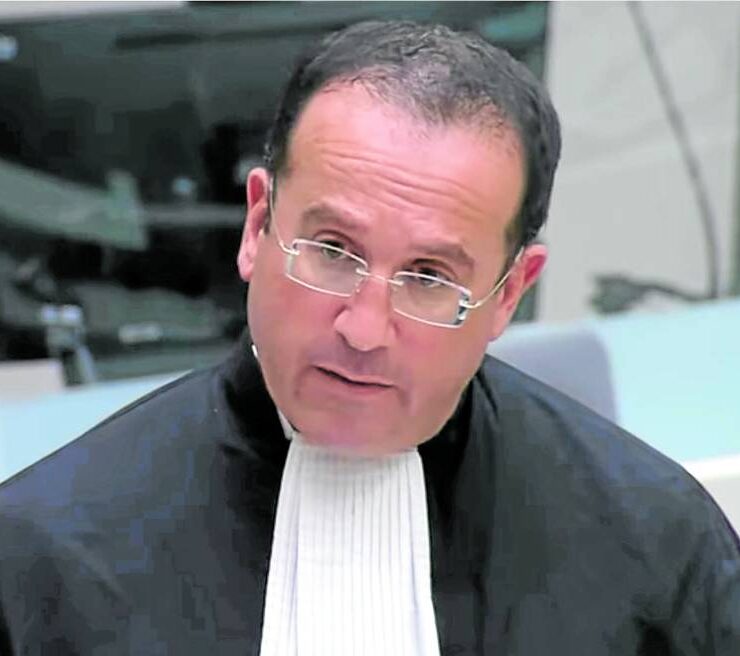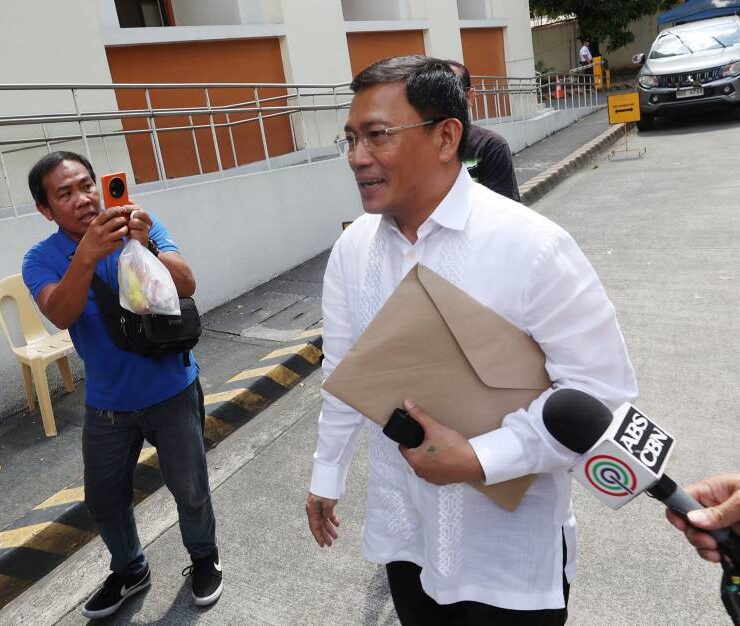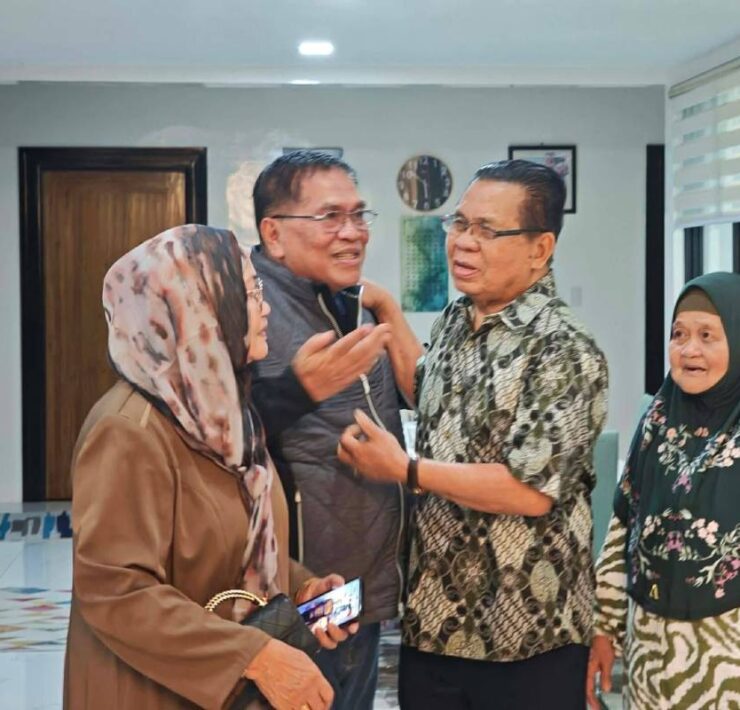Magsaysay Award winner pushes for ‘truth commission’ on drug war
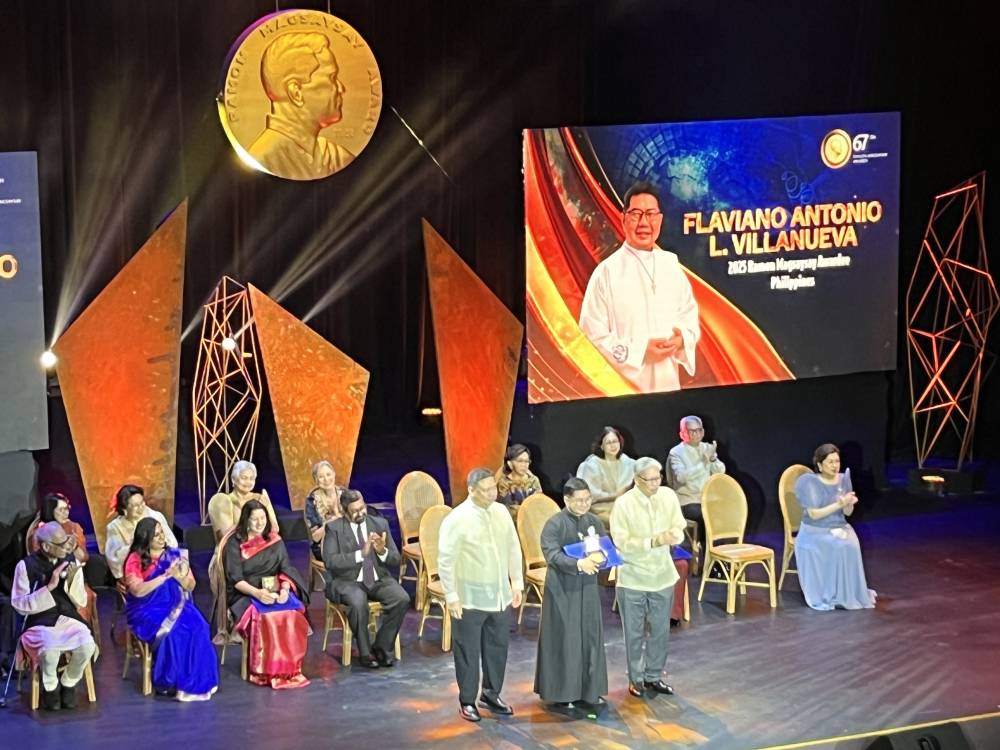
Ramon Magsaysay Award winner Fr. Flaviano “Flavie” Villanueva expressed support for the creation of a “truth commission” on the Duterte drug war, saying it would lead to deeper transparency and accountability over the thousands of extrajudicial killings (EJKs) during the previous administration.
In a speech on Friday formally accepting the award, considered the Asian equivalent of the Nobel Peace Prize, the 54-year-old Catholic priest cited many gaps that he said still existed as the nation grappled with the period marked by state-sanctioned violence and impunity.
“How many were truly killed? Who were the perpetrators and the killers that are still at large?… Who are the real people responsible for having blood on their hands? How were they killed? Who will continue to begin these studies, this research, this investigation?” he said, addressing an audience that included about 80 drug war victims, at the program held at the Manila Metropolitan Theater.
“That is why I strongly propose and support the creation of the EJK Truth Commission,” he stressed.
Villanueva said these are the “difficult questions” the government and the public should continue asking themselves “to stop the bleeding” and “start the healing” among the victims.
The police stick to the official record that the antinarcotics campaign unleashed by then President Rodrigo Duterte killed about 6,000 suspected drug users and pushers. Human rights watchdogs, however, put the death toll much higher at around 30,000.
‘Safe’ platform for victims
Also on Friday, Cardinal Pablo Virgilio David, president of the Catholic Bishops’ Conference of the Philippines, urged President Marcos to form a “National Truth and Reconciliation Commission,” which could serve as a “safe” platform for victims and witnesses to speak out and reach a more transparent disclosure of the EJKs and other abuses in the drug war.
According to David, also the bishop of the Diocese of Kalookan, a suburban city in Metro Manila that witnessed a spate of killings in the first year of the drug war, the truth body could be patterned after international models that also emerged from experiencing similar “periods of violence.”
Duterte is facing charges for murder as a crime against humanity before the International Criminal Court (ICC) in The Hague, the Netherlands, for waging the crackdown that allegedly also rewarded police officers and hired gunmen for every suspect killed.
The ICC’s Office of the Prosecutor (OTP) has charged the former president for being “individually criminally responsible” for the deaths in at least 49 cases.
The prosecution continues to gather evidence and witnesses even as the pretrial proceedings for Duterte’s case have already started. The lawyers for the victims and their families continue to appeal to other victims and potential witnesses to come forward and participate in the case.
‘Voiceless’ victims
In his speech, Villanueva cited a study conducted by Program Paghilom (Healing), which found that at least 322 law enforcers and “at least a thousand” civilians were involved in the killings.
A confessed drug user long before he was ordained a priest of the Society of Divine Word (SVD), Villanueva started “Paghilom,” a holistic intervention program to help provide funeral, legal and psychosocial assistance for the victims, at the onset of the drug war in 2016.
He paid tribute to the families and relatives left behind by the “voiceless” victims, the journalists who tirelessly reported and documented the killings, and the volunteers who went to great lengths to help the families crying for justice.
“When I first learned of this award, I simply grew quiet. I realized this honor was never about me, but about the many lives and hands that gave it meaning,” Villanueva said.
“The homeless man and woman who asked not for food, but for dignity. The mother who searched for the son taken by violence, by the police, his cohorts, under the orders of the past regime of the Duterte administration. And the volunteers who show up each day with open hearts,” he added.
‘Called to be faithful’
These people, he stressed, continue to “speak the truth even when the truth demands everything,” as silence and injustice “wound the soul.”
“There were times when truth became dangerous, when mercy was mistaken for rebellion, and compassion was branded as defiance,” the priest said.
“But each time, I remembered what I told our volunteers: We were not called to be safe; we are called to be faithful. And when you walk with the wounded, you let their pain touch your own.”
The priest showed a scroll bearing the names of the slain drug suspects, who he said “would never appear in the plaques, but appeared in the news.”
“But in appearing in the news, they appeared judged, maltreated, and even branded as people who fought back, even if they were lies,” he said.
The other Ramon Magsaysay awardees were Maldives diver Shaahina Ali and India’s Foundation to Educate Girls Globally.




